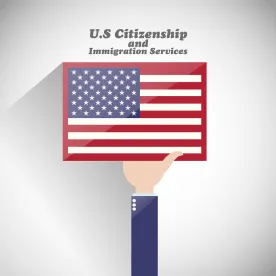On December 27, 2016, the Administrative Appeals Office (AAO)—the appellate body for U.S. Citizenship and Immigration Services (USCIS)—announced a new standard for National Interest Waiver visa petitions in a precedent decision, Matter of Dhanasar. This reassessment comes after almost 20 years of the standard announced in Matter of New York State Department of Transportation (NYSDOT) that has admittedly left many “uncertain what ultimately is the relevant inquiry.”
Background
To obtain U.S. lawful permanent residence or a “green card” through employment, the most frequently used categories require an offer of employment and a permanent labor certification from the U.S. Department of Labor (DOL). A labor certification is confirmation from the DOL that there is not an able, willing, and qualified U.S. worker for the position. However, the Secretary of the U.S. Department of Homeland Security can waive the labor certification and job offer requirement when doing so is “in the national interest.”
Undefined by statute and regulation, “national interest” is a broad concept subject to various interpretations. In 1998, the AAO in NYSDOT set out a three-prong standard for determining eligibility in the “national interest.” The standard required a showing that (1) the alien was seeking employment in an area of substantial intrinsic merit; (2) the proposed benefit would be national in scope; and (3) that the national interest would be adversely affected if a labor certification were required for the alien.
Matter of Dhanasar
Upon review of some 20 years’ worth of decisions, the AAO concluded that the “term ‘intrinsic’ [had added] little to the analysis yet [was] susceptible to unnecessary subjective evaluation” and that the second prong’s “national in scope” had been construed too narrowly, ruling out local and regional endeavors. The bigger issue concerned confusion over the third prong. In the decision, the AAO found that this prong had been explained several different ways within NYSDOT itself, leaving readers uncertain as to the relevant inquiry. The AAO also acknowledged that NYSDOT’s third prong could be misinterpreted to require that the petitioner submit evidence relevant to the very labor market test that the waiver is intended to forego, evidence of harm to the national interest, and/or evidence comparing foreign nationals to unidentified U.S. workers. The AAO also noted that the third prong “has proven particularly ill-suited for USCIS to evaluate petitions from self-employed individuals, such as entrepreneurs.”
Vacating NYSDOT, the AAO adopts a new framework to achieve greater clarity and flexibility to the national interest waiver process. Using a preponderance of the evidence standard, a petitioner must now demonstrate: “(1) that the foreign national’s proposed endeavor has both substantial merit and national importance; (2) that he or she is well positioned to advance the proposed endeavor; and (3) that, on balance, it would be beneficial to the United States to waive the job offer and labor certification requirements.” If these three elements are satisfied, USCIS may approve the national interest waiver as a matter of discretion.
Key Takeaways
Post-Dhanasar, an endeavor’s merit can be found in a range of areas such as business, entrepreneurialism, science, technology, culture, health, or education. An endeavor does not have to present a significant economic impact, which makes favorable decisions possible for professionals involved in research, pure science, and the furtherance of human knowledge. Additionally, prospective impact will no longer be evaluated solely in geographic terms. Even activities focused on one geographic area of the United States may be considered to have national importance.
Finally, petitioners will not be required to demonstrate that their endeavors are more likely than not to ultimately succeed. However, to merit a national interest waiver, petitioners must at least establish that they are well-positioned (with education, skills, knowledge, and record of success in related or similar efforts, etc.) to advance the proposed endeavor. There is no requirement for a showing of harm to the national interest or a comparison against U.S. workers in petitioners’ fields under the new framework.
The Dhanasar decision clearly enunciates which lines of inquiry should not be followed in a National Interest Waiver application; however, it does leave flexibility for both the petitioner and USCIS on other qualifying factors. Although this more flexible test can be met in a range of ways and can apply to a greater variety of individuals, the deciding factor in most applications will be the strength of the assembled evidence and its ability to demonstrate that, on balance, it would be beneficial to the United States to waive the requirements of a job offer and thus a labor certification.





 />i
/>i

